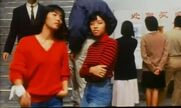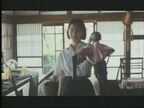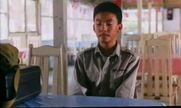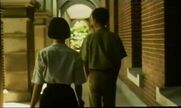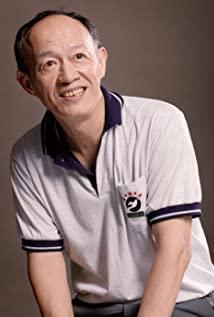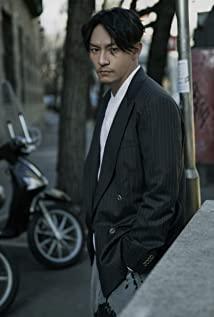Let’s talk about four time points first.
On February 28, 1947, due to the casualties of the Kuomintang policemen's brutal law enforcement the day before, the citizens of Taipei held a city strike parade. As a result, they clashed with the authorities, and then a large-scale armed riot broke out. It swept across most of Taiwan within a few days, and the Kuomintang immediately dispatched the army to suppress it. The movement ended in failure, which was called the "February 28 Incident." Immediately after that, Taiwan began a 38-year martial law.
In 1949, about 1.2 million Kuomintang soldiers, military relatives, exiled students, entrepreneurs, and civil servants from the mainland left their homes and fled to Taiwan with the defeat of the Kuomintang regime. Half of them were soldiers. In order to relieve the soldiers from their worries, their family members were arranged to live in a temporary military family residence - the military family's village.
On the evening of June 15, 1961, a murder case occurred in Qidi Lane, Kuling Street, Taipei. Mao Wu, a 16-year-old dropout from Jianzhong (full name of Taipei City Jianguo Senior High School), stabbed his girlfriend Liu Min to death due to a relationship dispute. This is the first juvenile crime case after the Kuomintang moved to Taiwan.
On July 15, 1987, the Taiwan authorities announced the lifting of the 38-year and 56-day martial law. It was from that day that Yang Dechang began to plan the shooting of "Guling Street Juvenile Murder".
These four time points seem to be unrelated, but they constitute all the background and origin of Yang Dechang's creation of "Guling Street Teenage Murder Case". Without them, this great film would not have been born. Although these backgrounds are omitted, the film is equally true. However, once it loses the endorsement of the times, "Guling Street Teenage Murder" will just become a homicide or criminal psychology film about teenagers, just like the title itself.
In the above background, there is a term that we are both familiar with and unfamiliar with: "military dependents' village". This word, which is now more associated with food, actually has a very special meaning in the history of Taiwan. The people living in the military dependents' villages come from all over mainland China. They bring the local customs and unique culture of each province to form "Little China". Of course, the "military family's village" is just a symbol, and behind it are the cultural differences and contradictions among various ethnic groups in Taiwan.
Taiwanese can be roughly divided into three major ethnic groups. One is the aborigines, who have lived on the island before the arrival of the Han people. For example, the famous Gaoshan people are one of the aborigines; The Hokkien from Fujian and the Hakka from Guangdong immigrated to Taiwan; the third is the people from other provinces who came after the Nationalist government took over Taiwan and followed the Kuomintang's retreat. Compared with people from the province, who belong to a single Hokkien group, the origins of people from other provinces are much more complicated. They come from not only all over China, but also various occupations. Their arrival has created many social problems in Taiwan.
If cultural differences such as diet, language, and customs still have room for further integration, the contradictions in politics and power are difficult to reconcile. After the victory of the Anti-Japanese War, the Kuomintang government took over Taiwan, but the Kuomintang troops transferred to Taiwan had corrupt military discipline and committed all kinds of evil, and the administrative officials were also corrupt and tyrannical. The "February 28 Incident" mentioned above was the general outbreak of conflicts between locals and people from other provinces, and it was also a watershed in cross-strait sentiment, and later became the DPP's use of exaggerating "people from other provinces oppress local people". weapon.
In the 1960s, when the story in the film took place, mainlanders who moved with them knew that the so-called "counter-attack the mainland" had become a slogan, and returning home was almost impossible. Coupled with the lack of material, long-term security and communism caused by political coercion, differences in provincial nationality, fading Japanese cultural influence, and increasing American cultural influence, Taiwan in the 1960s became a strange time and space. For the purpose of self-protection, the residents of the same military village will form a relatively closed life circle and keep a certain distance from the locals in Taiwan. As a witness of the times, Yang Dechang, who grew up in a military dependents village, naturally hopes to use his own video language to spare no effort to reproduce the social environment of "cannibalism", and to use this collective tragedy to understand the relationship between individuals, society, politics and culture. Think.
The Guling Street in the film was originally an old book street, but it has changed beyond recognition when the film was filmed. As a director who pays attention to details, the mutual derivation of characters and the environment, and the realistic style, Yang Dechang simply rebuilt a Guling Street, and even went to Jianguo Middle School (also the director's own alma mater), the school of the person involved in the crime, to shoot. There are a total of 92 scenes in the film that need to be revised and reconstructed. Yang Dechang not only has strict requirements on the set, but even the kettle, which is difficult for the audience to notice, must be found to be in line with the characteristics of the era. To this end, the film's budget was expanded from NT$13 million to NT$27 million.
In addition to the details, Yang Dechang's temper is also well known. It is no exaggeration to call him a "tyrant" on the set. He often throws hats and scolds for the actor's performance. For the young actors in the film, including Zhang Zhen, who have almost no acting experience, encountering such a director is a childhood shadow. Especially for the protagonist Zhang Zhen, since then he has been afraid of the director. There was a scene in which Zhang Zhen was pushed onto a stone pillar, and he NG for more than 40 times until Zhang Zhen "hit" the feeling that Director Yang wanted. There was another scene where Zhang Zhen's reaction was to be filmed when he saw the dead man. Yang Dechang knew that Zhang Zhen couldn't act, so he scolded him inexplicably before shooting, and then locked him in the warehouse for half an hour. When the shooting started, Zhang Zhen was pulled out and placed in front of the camera, and finally the appearance of Zhang Zhen being stunned was successfully eliminated.
Of course, Yang Dechang's strict requirements are also of great benefit to Zhang Zhen. Zhang Zhen's father, Zhang Guozhu (who also plays Zhang Zhen's father in the film), said that Zhang Zhen used to be very lively, but after the "Little Four" he became a lot more taciturn. Zhang Zhen himself once said: This movie has a great influence on my personality. The character I played in it, Xiao Si, is very similar to me. It was only when I grew up that I realized that I kept thinking about why it was so similar, but I couldn’t come out of it. If it weren't for this movie, I definitely wouldn't be an actor, maybe drive a cab now. It can be said that part of the success of "Guling Street Teenage Murder" stems from the mutual achievements of Zhang Zhen and Xiao Si.
In addition to the high standards for scenes and actors, Yang Dechang is also a master of control over images. In the film, we can see that the director has maintained his usual attitude of rejecting promiscuity and nostalgia. Instead, he used dark colors and tones, as well as a large number of panoramic, medium and long-term perspectives to make the environment occupy most of the picture. The narrative program shows a macro and three-dimensional historical aspect. In the panorama of "Guling Street Teenage Murder Case", the environment is often the subject. In terms of tone, the environment often appears in the form of shadows, and the characters seem so small that they are almost engulfed by the environment, implying the vulnerability of people in the environment. At the same time, Yang Dechang neither deliberately guides the audience's emotions nor rushes to express his position. Instead, he is content with the narrative, maintains a moderate degree of objectivity, silently shows the side of history, and accumulates emotional tension little by little, which makes this work more cruel and real. .
This "cruel" is even more cruel because of "youth". We have seen a lot of cruel youth in a certain era. Japan has Nagisa Oshima's "The Cruel Story of Youth", South Korea has Yu He's "The Cruel History of Horse Porridge Street", and mainland China has Jiang Wen's "Sunny Days". The most representative is the "Guling Street Teenage Murder Case", and later Niu Chengze's "Mengya". Including "All About Lily Zhou" (for film review, see "All About Lily Zhou": The Cruel Story of Youth in the 21st Century ), which has no obvious chronological characteristics, also uses "youth" to tell cruel stories. Why are the protagonists of these works all young teenagers? Because they have extraordinary enthusiasm, restlessness and desire to deal with the external world, but on the other hand they have unique ignorance, confusion and helplessness, which often lead to tragedies under the control of hormones.
Although Yang Dechang did not attack the mainstream of society, the world of children is undoubtedly a projection of the adult world. The Chinese people's tendency to form gangs and gangs for selfishness is also reflected in children. Look at the gang of foreign children on Guling Street who are not popular with the locals. They also form gangs to keep warm. The children of military families form a group called "217", and the children of public officials collude to form a "small park", which is inexplicably placed. The stance is incompatible, and even within the "Little Park" there is a factional struggle. The half-boys often fight for their turf and their girlfriends, intertwined with the pursuit of women and the interests of the gang, and gain vanity and self-belonging.
The source of these performances, that is, the key signifier of "Guling Street Teenage Murder Case" is "identity". It should be said that the identification of self-identity troubles everyone in the military dependents’ village. In the film, the fourth mother inadvertently said this: "I have fought with the Japanese for eight years, and now I live in a Japanese house and listen to Japanese songs." Still full of strong homesickness. This group of people followed the Kuomintang to Taiwan, and because of the cross-strait issue, they could not return to their homeland, could not contact their relatives, and could not integrate into the culture and circle of the local people in Taiwan. Survival.
In the next generation, their identity dilemma is even more serious. The first generation of military dependents can also talk to their peers in their native language, chat about the stories that happened in the mainland, and at least they can clearly find their identity. Even if it's not Taiwanese, it's still Chinese, or Sichuan, Shandong, or Shanghai. But the generation of the fourth generation is different. They have no intuitive concept of their homeland. They only learn about the situation in their hometown from the words of their parents. It is difficult to use imagination to generate the nostalgic resonance of their parents in their thoughts and emotions. On the other hand, as foreigners, it is difficult for them to be recognized by the children of Taiwanese. As a result, confusion, loss and anxiety deeply affect the second generation in the military village.
The protagonist Xiao Si is a typical example. He was originally a fringe role between a good student and a little Taibao. On the one hand, his grades were very good, and on the other hand, he often hung out with the kittens and planes of the Little Park Gang. Until he got acquainted with the heroine Xiao Ming, Xiao Si, who didn't want to get into trouble, fell into the struggle of the gang step by step, and the image of a good student was shattered inch by inch.
In fact, Xiao Si's values are most influenced by two people. One is his father. Xiao Si's father was a traditional intellectual during the Republic of China. He had a strong sense of justice and morality, but he was not smooth enough in dealing with things. At the beginning of the film, Xiao Si was unfairly punished by the school. His father argued with the teacher righteously, and even encouraged Xiao Si, who was remembered to be demerited, "If a person still apologizes and pleases for the mistakes he has not made, then this kind of What can't people do? You have to believe that your future can be determined by your own efforts." Xiao Si agreed, and always used his father as an example. The other is Hani, the former boss of the Little Park Gang and Xiao Ming's ex-boyfriend, who was on the run because of the murder. After coming back, not only did he not take Xiao Si, who is close to Xiao Ming, as an embarrassment, but he also exchanged heart with him. When intervening in the site dispute between the Little Park Gang and the 217 Gang, he chose a single-handedly heroic stance, which made Little Si fascinated.
Both father and Hani are heroes in Xiao Si's heart, but what happened? Xiao Si's father was implicated because his colleague was arrested, and he was also suspected of being a member of the Communist Party. This interrogation also became a turning point in his father's personality change. The interrogators did not care about the subjective honesty of Xiao Si's father, nor the objective truth, but the behavior itself of whether he was willing to admit guilt. Father's initial defense signaled that the system was wrong, and when he finally stopped doubting and confessed his guilt, what he confessed was no longer important, so he was released immediately. His crime was actually purely formal, that is, insisting on the standpoint of the freedom of the subject, and the trial was a fatal blow to his inner will. Since then, he has reined in the elite consciousness of intellectuals and became a small civil servant who only wants basic security of life. Later, he even sought to cooperate with businessmen he once looked down on to do business in order to make a living. And when he learned that Xiao Si had murdered, the father who came to the police station just drooped his head, which was in stark contrast to the scene where he fought with the teacher at school. Hani's ending was even more tragic. He wanted to have a good talk with Shandong, the leader of the 217 Gang, but he was plotted against him and lost his life under the wheel.
Xiao Si witnessed the disappearance of the idealist Hani and the collapse of his father, who was like a beacon, and the last straw that broke the camel's back was Xiao Ming's betrayal.
Xiao Ming is a legendary character in the film. To be precise, there are rumors about her everywhere. It was Hani's girlfriend at first, and then she and Slick were unruly in the park, arousing suspicion within the teenage gang, and then she caught up with Xiaohu, then Xiaosi, and finally committed to the official second-generation pony. The opposite of good brother pony. The reason why Xiao Ming is fascinating is that mystery. No one knows who she likes, and no one understands what she is thinking. The boys fall into fantasy because of her inaction. But in fact, although Xiao Ming is young, he is well versed in the laws of reality. She has been dependent on her mother since she was a child, and lived a life of indeterminate residence and dependents. For her, wherever she went, she needed to rely on a strong man to protect herself. And what made Xiao Si the most grieved and indignant was not that Xiao Ming turned into the arms of the son and brother Xiaoma, but Xiaoma didn't take it seriously: "Girl, that's the way it is, give her food and clothes, fool around, and still be able to do it. how is everything?"
At this point, Xiao Si's life beliefs and values have been completely destroyed. He took a dagger to the school gate to block the pony, but unexpectedly met Xiao Ming. Until this moment, he still wanted to make a final effort for his ideal, and he emphasized to Xiao Ming with paranoia: "Only I can help you, and I am your only hope now." However, his affection and narcissism were met by Xiao Ming. The most ruthless crush: "You want to change me? I'm just like this world, and this world won't change. Who do you think you are?" Xiao Si, who was under constant pressure, finally collapsed, stabbing the dagger again and again. on Xiao Ming. My father went from being arrogant to following the crowd, his best friend stole his girlfriend, and the girl he liked became an inferior person who was looked down upon by others. He couldn't convince Xiao Ming, and he didn't know how to save Xiao Ming. Narcissism turns into aggression when the integrity of the self is threatened. We can clearly hear him muttering, "Shameless, worthless!" While jabbing at the same time, the punishment is not only for Xiao Ming, but also for himself, he chose to sacrifice himself to paradox to demonstrate the fairness of the system.
We understand where the viciousness of the studio guards, dean of students, school hospital nurses, and school teachers, representatives of adult society, comes from. Social injustice created resentment in their hearts, and the coercion of power forced them to turn this resentment into top-down violence. We also understand where the violent tendencies of those teenagers come from. They imitated adults and began to bully the weak unscrupulously. Xiao Si's killing of Xiao Ming was nothing but a top-down violence against the weak.
For Xiao Si, the director actually concealed a lot of images. Xiao Si began to enter the night department of Jianzhong, which means that it is a world with more darkness than light. His physical symptoms are poor eyesight, which means that he can't see Xiao Ming and the world, and at the same time, it leads to his misreading of the world (many of his actions have the result of a combination of yin and yang). He stole a flashlight from the movie set and became his other "eye". This "eye" participated in the gang fights and saw the rumbling military vehicles at night, but it didn't help him see the world clearly, it was a witness more intense darkness. Xiao Si finally returned the flashlight, indicating that he gave up on "seeing", and even roared at the director on the set: "You can't even tell the real from the fake, what movie are you making?"
In this film, Yang Dechang skillfully collected information about that special era from every corner, and established a temporary experience, a completely immersive world, with his whispers. Even though the film is nearly four hours long, the viewers do not feel procrastination, but want to see more sections of that era, because it is not only the youth of boys and girls that is wiped out there. Today, with the disappearance of military dependents' villages, the residual imprint of Taiwan's connection with the mainland has gradually disappeared. The Kuomintang’s early centralized rule had the opposite effect. The provincial consciousness and “de-sinicization” continued to rise in Taiwan. The original ideological contention was added to the meaning of political power grabbing, which became more and more abbreviated and narrow. How many tears were wiped away in silence, and the orphans of Asia were weeping in the wind.
Just like the lyrics in the song "Black Bat Squadron" about the military village:
Some words have never been said,
Some tears never stop,
Some injuries have never been healed,
Some pain has never woken up.
♑
View more about A Brighter Summer Day reviews



